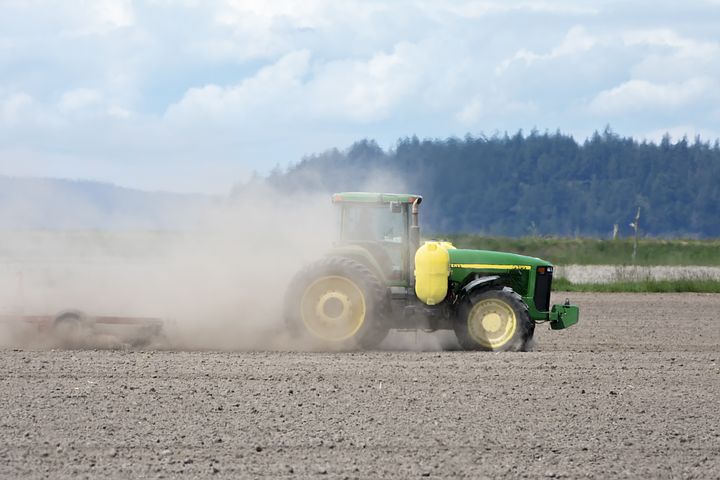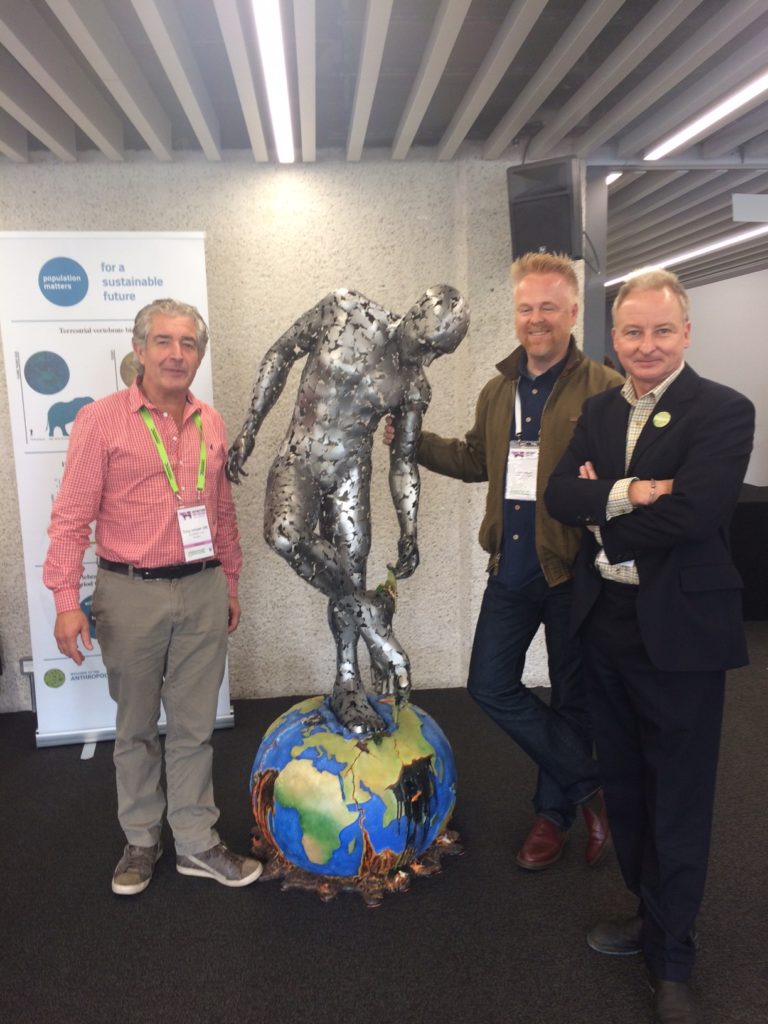
Livestock, extinction . . . and population
Last week, Population Matters attended the high-profile Livestock and Extinction conference in London, organised by Compassion in World Farming (CIWF) and WWF-UK. The conference brought together experts on food production, wildlife, the environment, policymaking, and health to examine the impact of industrial agriculture on the natural world and identify solutions.

PM held a stall at the conference – featuring our Anthropocene campaign ambassador, Big Foot – to bring the message that any discussion of food production must also look at demand for food arising from population growth.
The Anthropocene in action
Attendees at the conference heard in depth about the human impact on the environment, much of the content reinforcing the messages of PM’s Welcome to the Anthropocene campaign. Issues such as the decimation of bees, climate change, and the Sixth Mass Extinction were discussed and audiences were left in no doubt about the role of intensive livestock production – especially the production of animal feed – in driving these problems.
- There are 23 billion domesticated birds alive at any one time on the planet (WWF)
- Up to 40% of all crops grown globally are for animal feed (CIWF)
- The livestock industry contributes 14% of greenhouse gas emissions (FAO)
- Vulnerable natural habitats such as the Amazon Cerrado and Yangtze River basin are already used to grow feed for livestock (WWF)
A consistent message reinforced throughout the event was the need to move towards more plant-based diets, a measure that Population Matters has advocated as a way for individuals to reduce their impact.
Human populations drive food demand and extinction
A number of presentations and speakers touched on the impact of human population growth- both as a direct threat to the environment and a driver of demand for food. Some addressed the issue directly – one said “we’re overpopulated and we all know it” – and a speaker from WWF recognised the importance of family planning and women’s education and empowerment as tools to help prevent extinction through reducing population pressure.
Overall, however, the issue was very under-represented. Nevertheless, when PM director Robin Maynard raised it during a question and answer session, his remarks received a round of applause and almost all delegates who visited the Population Matters stall expressed support for our position.
Find out more
Our Welcome to the Anthropocene campaign details the impact of human beings on the natural world and calls on natural history organisations such as museums to do more to inform the public.
